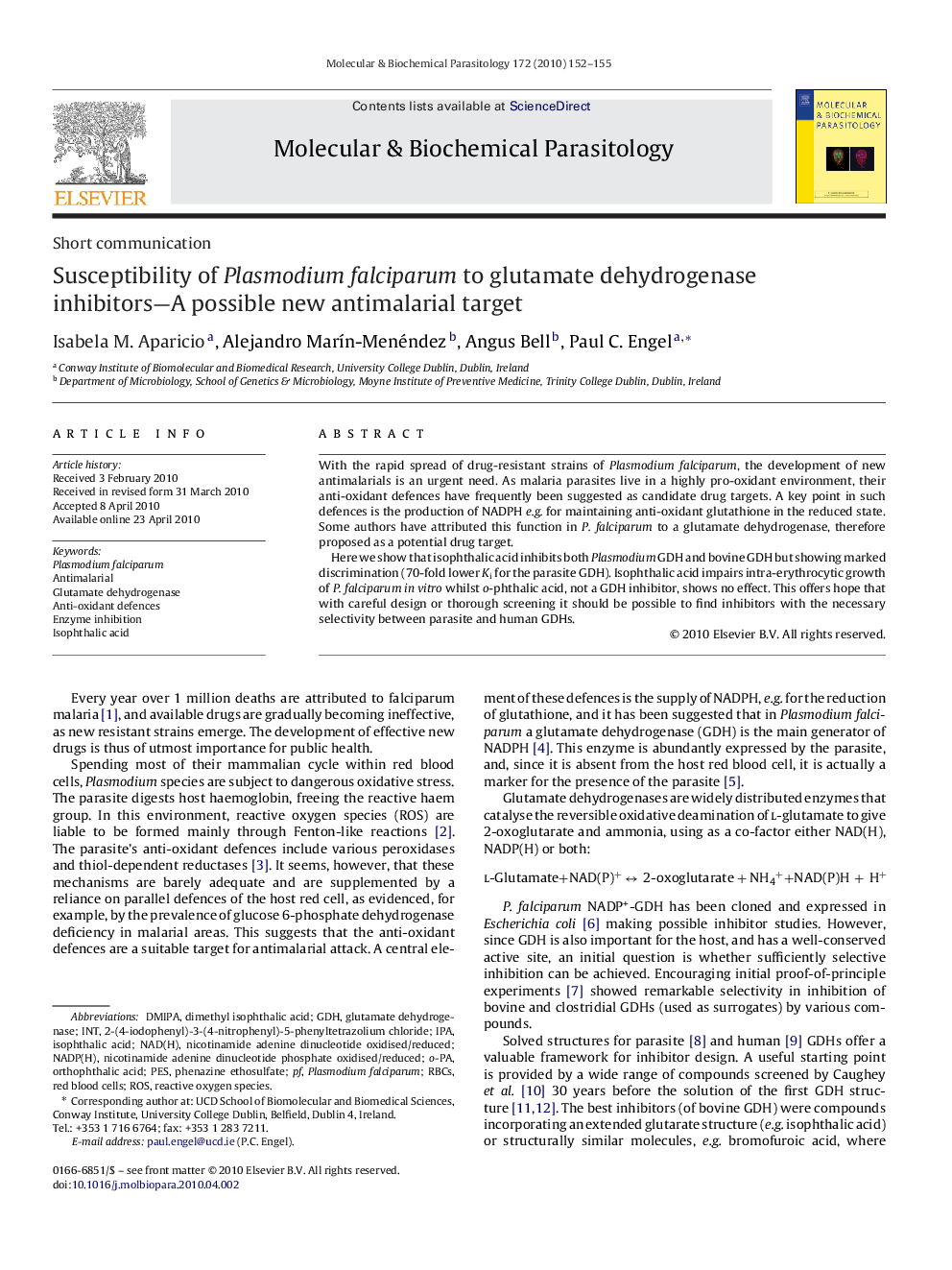| Article ID | Journal | Published Year | Pages | File Type |
|---|---|---|---|---|
| 5915849 | Molecular and Biochemical Parasitology | 2010 | 4 Pages |
With the rapid spread of drug-resistant strains of Plasmodium falciparum, the development of new antimalarials is an urgent need. As malaria parasites live in a highly pro-oxidant environment, their anti-oxidant defences have frequently been suggested as candidate drug targets. A key point in such defences is the production of NADPH e.g. for maintaining anti-oxidant glutathione in the reduced state. Some authors have attributed this function in P. falciparum to a glutamate dehydrogenase, therefore proposed as a potential drug target.Here we show that isophthalic acid inhibits both Plasmodium GDH and bovine GDH but showing marked discrimination (70-fold lower Ki for the parasite GDH). Isophthalic acid impairs intra-erythrocytic growth of P. falciparum in vitro whilst o-phthalic acid, not a GDH inhibitor, shows no effect. This offers hope that with careful design or thorough screening it should be possible to find inhibitors with the necessary selectivity between parasite and human GDHs.
Graphical abstractWe report impairment of parasite growth in vitro by an inhibitor of Plasmodium falciparum glutamate dehydrogenase, an enzyme believed to be essential for parasite anti-oxidant defences.Download high-res image (87KB)Download full-size image
